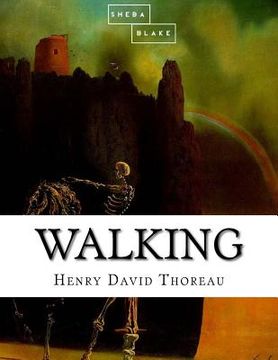Reseña del libro "Walking"
Walking is a lecture by Henry David Thoreau first delivered at the Concord Lyceum on April 23, 1851. It was written between 1851 and 1860, but parts were extracted from his earlier journals. Thoreau read the piece a total of ten times, more than any other of his lectures. "Walking" was first published as an essay in the Atlantic Monthly after his death in 1862. He considered it one of his seminal works, so much so, that he once wrote of the lecture, "I regard this as a sort of introduction to all that I may write hereafter." Walking is a Transcendental essay in which Thoreau talks about the importance of nature to mankind, and how people cannot survive without nature, physically, mentally, and spiritually, yet we seem to be spending more and more time entrenched by society. For Thoreau walking is a self-reflective spiritual act that occurs only when you are away from society, that allows you to learn about who you are, and find other aspects of yourself that have been chipped away by society. Walking is an important cannon in the transcendental movement that would lay the foundation for his best known work, Walden. Along with Ralph Waldo Emerson's Nature, and George Perkins Marsh's Man and Nature, it has become one of the most important essays in the environmental movement. Walking was written between 1851-1860. During this time a large number of important works were published such as, Nathaniel Hawthorne's, The Scarlet Letter in 1850, Emerson's A Representative Man, Herman Melville's Moby Dick in 1851, Harriet Beecher Stowe's Uncle Tom's Cabin in 1852, and Walt Whitman's Leaves of Grass in 1855. Politically and socially, there was the 1850 compromise, and Kansas/Nebraska Act, as well as the Fugitive Slave act. The 1850 compromise and Kansas/Nebraska Act influenced Thoreau's outlook on westward expansion, and how we had to preserve nature, how society was not everything, how there was much wild yet to be found, because at the time westward expansion was a cultural idea in the air. "

